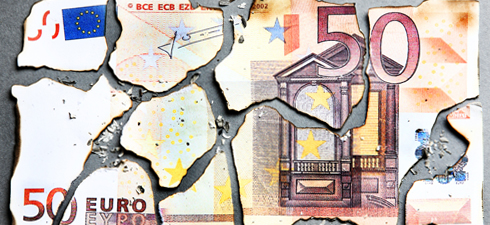
Here we are once again. German officials are again rebuking any calls to steer Europe out of the deflationary cycle that would slowly but surely break it havoc. We have heard the German argument times and times again. In substance, Germans say they don’t want to pay for the profligate Greek, Spanish and their likes of “peripheral countries” as they are dubbed in Berlin. Angela Merkel, the German chancellor has certainly won some praise from her national constituency by sticking to her hard line, and by advocating thrift at home and austerity elsewhere in Europe. But is it really worth it?
For the German government, it does not matter that such respected economists as former US Treasury Secretary Lawrence Summers and Nobel Prize Laureate Paul Krugman voice alarming concerns about the dramatic consequences of a nonsensical policy that will produce ever more of the same: deflation, recession, unemployment and, eventually, political and social implosion. Last year Germany convinced all the other Eurozone nations – large and small – of signing a pact that is tantamount to a “fiscal chastity belt”. This pact imposes stringent policies across the board and penalizes Eurozone members that fail to bring their public finances in order. The rational seems clear: in order to avoid the mistakes of the past and to ensure the long term viability of the Eurozone, there will be no more rescue plans in the future without the adoption of these stringent rules.
However, what the German officials seem to ignore is that you cannot infer the workings of a complex interdependent regional economy, such as the Eurozone, from the “one size fits all” plain bookkeeping principles that underpin the German reasoning. After all it has been said many times that the woes faced by Spain or Italy are not reducible to the difficulties that plague Greece or Ireland. Almost all the European countries have suffered from the global economic and financial crisis that hit the world in 2008. But as Lawrence Summers rightly writes in the FT, it is dangerous and counterproductive to treat the apparent symptoms instead of treating the inner causes. And in this realm, there should be indeed more room for flexibility and piecemeal treatment, in order to avoid the danger of a generalized deflationary spiral. It is a question of survival for the European economy.
Hence, Germany’s stubborn insistence upon maintaining the “austerity and nothing but austerity” mantra, and its sadomasochistic sponsoring of a “one bitter remedy fits all” policy, with the elusive hope of calming down the financial markets and of building a new – more German, less profligate – Europe will rapidly be smashed by the harsh reality of a complex, asymmetric, economic machinery. In this context, putting back growth on the discussion table, as François Hollande did, might be the last chance for Europe and the World to avoid an economic disaster.
